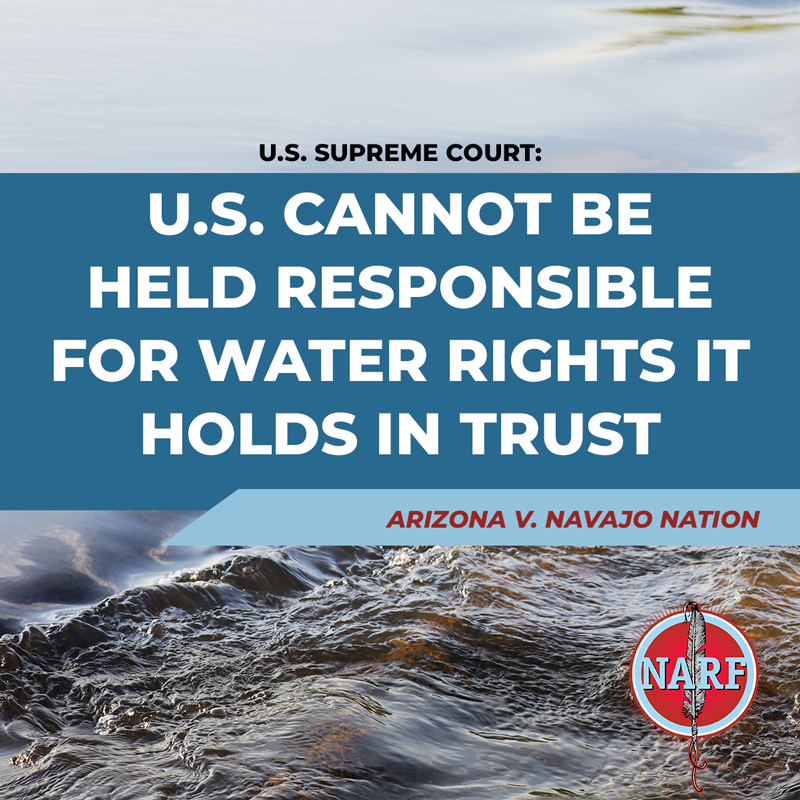
On June 22, 2023, the United States Supreme Court refused to hold the United States accountable for water rights it holds in trust for the Navajo Nation. The Court’s decision in Arizona v. Navajo Nation held that the United States did not have an affirmative treaty or trust obligation to identify and account for Navajo Nation water rights in the Colorado River.
While the Court agreed tribal nations indeed have water rights under the Winters doctrine, the Court nevertheless concluded there was no obligation to take steps to secure, or even identify, the water needed for the reservation. Winters rights, confirmed in the Winters case, are water rights tribal nations have to ensure their reservations are livable and productive.
“The U.S. government excluded Navajo tribal citizens from receiving a share of water when the original apportioning occurred and today’s Supreme Court decision for Arizona v. Navajo Nation condoned this lack of accountability,” said Native American Rights Fund (NARF) Executive Director John Echohawk. “Despite today’s ruling, Tribal Nations will continue to assert their water rights and NARF remains committed to that fight.”
Thirty-seven tribal governments, the National Congress of American Indians (NCAI), the Affiliated Tribes of Northwest Indians, and the San Luis Rey Indian Water Authority filed an amicus brief in support of the Navajo Nation in February 2023. The brief urged the Court to respect the Winters water rights doctrine and enforce the trust relationship under which the United States has an obligation to assure water for the Navajo Reservation.
“Water is necessary for all life, and when our ancestors negotiated agreements with the United States to secure our lands and our protection, water was understood and still is understood to be inseparable from the land and from our peoples. Today, the Supreme Court has once again assisted in the United States’ centuries-long attempts to try to get out of the promises they have made to Tribal Nations by stating that treaties only secure access to water, but do not require the United States to take any steps to protect or provide that water to our people,” said NCAI President Fawn Sharp.
“While this decision is a setback, through unity and vigilant advocacy, will continue to defend our sovereignty and preserve our cultures and ways of life,” said Sharp.
The amicus brief was filed by Professor Heather D. Whiteman Runs Him; Professor Monte Mills, Native American Law Center at the University of Washington School of Law; Professor Dylan R. Hedden-Nicely, University of Idaho College of Law; and John Echohawk, Steven C. Moore, David L. Gover, Ada Montague Stepleton, Joe Tenorio, Morgan E. Saunders, Wesley James Furlong, and Sydney Tarzwell at the Native American Rights Fund. Find case documents at the Tribal Supreme Court Project website.
More blog posts

